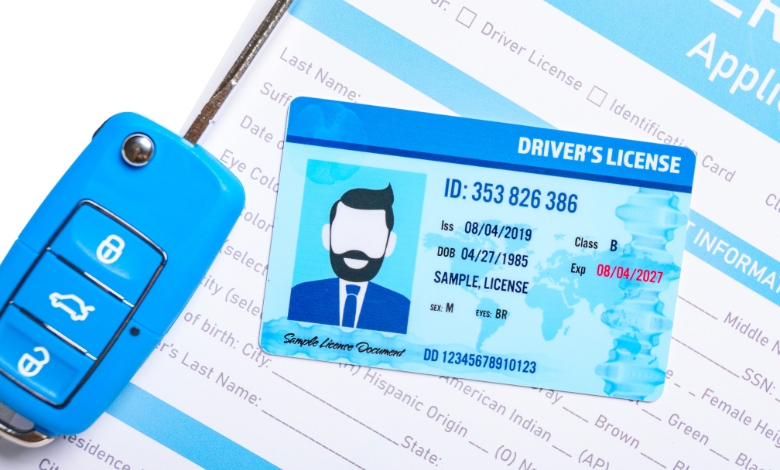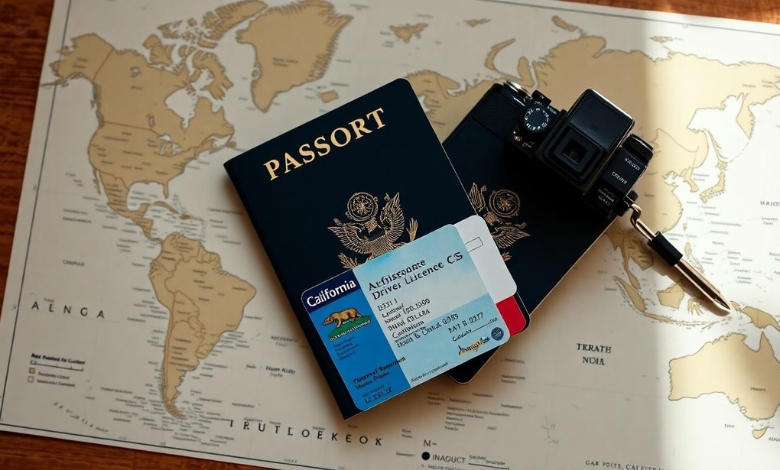Understand what is DP or SOFA driver’s license, and its importance for diplomats and military personnel abroad.
If you’ve just landed a diplomatic job overseas or your family is moving under a military deal, there’s a lot to handle—like packing up, learning a new culture, labor and employment laws, and filling out paperwork.
With all that, it’s easy to forget about driving legally in the new place.
That’s where DP (Diplomatic Permit) and SOFA (Status of Forces Agreement) driver’s licenses come in handy.
Wondering what these licenses are all about?
Let’s clear it up together.
Article Breakdown
What is a DP Driver’s License?

Let’s start with the basics:
DP means Diplomatic Permit. So, what exactly does that mean? A DP driver’s license is a special license given to diplomats, embassy staff, and sometimes their family members when they’re working in another country.
The idea is to let them drive in that country without needing to get a regular local driver’s license.
Why Does It Exist?
A DP license is all about international agreements.
Diplomats usually don’t have to follow some local laws, and the DP license fits right in with that.
Think about how hard it would be to get a driver’s license in a place where you can’t speak the language or don’t know the rules.
The DP license makes life easier by being a special kind of driving permit that respects both the diplomat’s role and the country’s rules.
A friend of mine who worked at an embassy in Europe told me having a DP license made getting around much simpler without dealing with local red tape.
He joked it was like having a “backstage pass” to driving.
It’s essential for diplomats who relocate every few years.
Understanding the SOFA Driver’s License
The SOFA driver’s license is a special type of license that’s super important for military folks and their families stationed overseas.
If you’re serving in the U.S. military and find yourself in countries like Japan or Germany, getting a local driver’s license can be a hassle, with road rules that might not be familiar.
That’s why the SOFA driver’s license is a lifesaver.
Who Needs It?
If you’re in the military and being stationed abroad, or if you’re a family member or civilian employee with the forces, you’ll likely need a SOFA license.
This special driver’s license lets you drive without fussing over getting a local license, thanks to an agreement with the host country.
Key Benefits:
- Simplicity: SOFA licenses usually have straightforward testing made just for military folks.
- Official Recognition: Host countries recognize these licenses through their agreements with the military.
- Legal Perks: Similar to a regular license, SOFA licenses offer some legal protections, like lower fines for small offenses.
I talked to a military spouse at an event overseas. She said having a SOFA license was a “lifesaver” because it kept her independent while living abroad.
She mentioned, “Without it, I’d feel stuck on base,” stressing how crucial it was for doing errands, school runs, and soaking in local culture.
How to Apply for a DP or SOFA Driver’s License
Application Process for a DP Driver’s License
The process of obtaining a DP driver’s license varies by country, but here’s a simplified overview:
- Diplomatic Status Verification: The first step is ensuring you qualify. This license is usually issued by the host country’s ministry of foreign affairs or an equivalent authority.
- Documentation: Be prepared to submit proof of diplomatic status, existing valid driver’s licenses, and possibly an international driving permit (IDP).
- Embassy Coordination: Most of the time, your embassy will guide you through the process, acting as a liaison with the local authorities.
Tip: Contact your embassy well ahead of your planned driving date. Sometimes, bureaucracy can drag out longer than expected.
Application Process for a SOFA Driver’s License
For those serving in the military or their dependents:
- Initial Briefing: Often, military bases provide an orientation session that includes how to apply for a SOFA license. Take advantage of these resources.
- Driving Tests: Depending on the host country, you may need to pass a written test that covers local driving laws.
- Documentation: Proof of your SOFA status, military ID, and a valid home country license will be necessary.
- Base Administration: Applications are processed through the base’s administrative office or legal department.
Example: In Japan, U.S. military personnel need to pass the Japan Traffic Regulation test to receive their SOFA license. This test ensures that drivers understand the unique aspects of driving in the country, like driving on the left side of the road.
Key Differences Between DP and SOFA Licenses
While both licenses are specialized and cater to unique circumstances, there are significant differences:
1. Who Can Obtain Them
- DP License: Typically reserved for diplomats, embassy staff, and their immediate families.
- SOFA License: Issued to military personnel, their dependents, and affiliated civilian staff.
2. Legal Protections
- DP License: Often accompanied by broader diplomatic immunity.
- SOFA License: Offers some legal protections but is bound by the terms of the Status of Forces Agreement.
3. Application Process
- DP License: More centralized, often managed directly through diplomatic channels.
- SOFA License: Tends to be handled within military bases, tailored for ease of use by service members.
Why These Licenses Matter
The Bigger Picture
Having a DP or SOFA license isn’t only about driving; it’s about feeling empowered, adapting smoothly, and staying legally protected.
For diplomats, the DP license makes it easier to do their job without legal hassles.
For military families, the SOFA license helps bring normalcy in a new place.
I remember an airman in Germany who told me that driving through Bavaria was both calming and exciting.
He said, “Without that SOFA license, I would’ve missed so much,” highlighting that it was more than just a permit—it opened up a whole new cultural experience.
Frequently Asked Questions
1. Do I need a local license if I have a SOFA driver’s license?
Usually, no. The SOFA driver’s license is recognized by the host country under the Status of Forces Agreement. However, it’s wise to carry both your SOFA license and military ID at all times.
2. Can a DP driver’s license be revoked?
Yes, under specific circumstances. While diplomats have immunity, driving recklessly or endangering public safety can lead to consequences, including the potential revocation of the license.
3. How long are these licenses valid?
It depends. A DP license usually matches the duration of the diplomatic assignment. A SOFA license is often valid for as long as the individual is stationed in the host country.
Tips for Navigating the Road Abroad
1. Know the Local Laws
Even with a DP or SOFA license, understanding local traffic rules is non-negotiable. Research or attend local briefings if they’re available.
2. Embrace Cultural Differences
Driving in a new country isn’t just about rules; it’s an immersion into the culture. Whether it’s learning to honk less in Japan or anticipating roundabouts in Europe, adapting to local customs can make your driving experience smoother.
3. Connect with the Community
Sometimes, the best way to learn is through others. Join local forums, attend embassy or base events, and talk to those who’ve been in your shoes.
Key Takeaways
- Whether you’re embarking on a diplomatic mission or starting a new chapter as a military family overseas, understanding and obtaining the right driver’s license is more than just a formality—it’s an essential part of adapting to life abroad.
- DP and SOFA licenses simplify this transition, offering a blend of legal ease and practical benefits.
- By grasping what they entail, you’re not just checking off a box; you’re equipping yourself for independence and deeper engagement with your new home.
Additional Resources:
- US Embassy Directory: You can find a comprehensive list of U.S. embassies and consulates on the U.S. Department of State’s official website.
- Foreign Affairs Manual on Diplomatic and Consular Immunity: Detailed information on diplomatic and consular immunity can be found in the Foreign Affairs Manual.
- Driving Tips for Different Countries: For tips on driving in various countries, you can refer to Driving and Road Safety Abroad from the U.S. Department of State.



